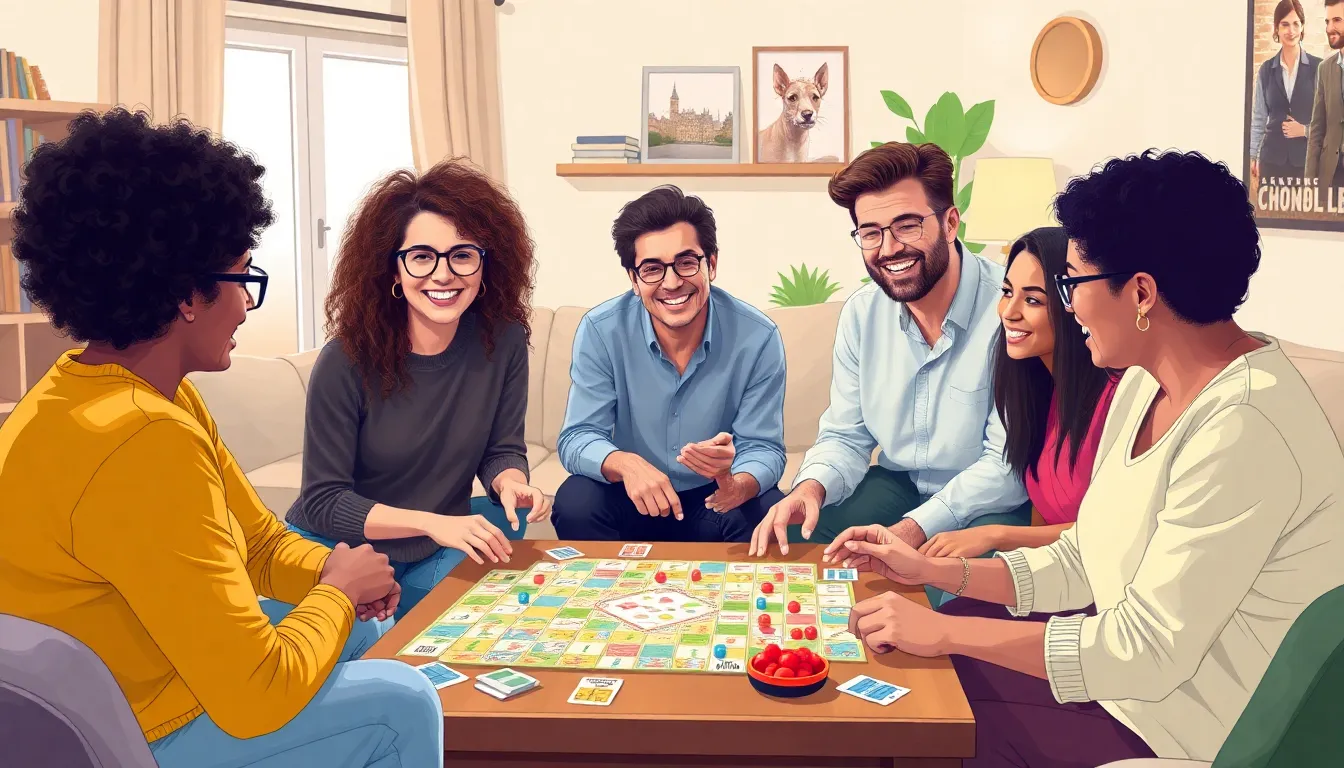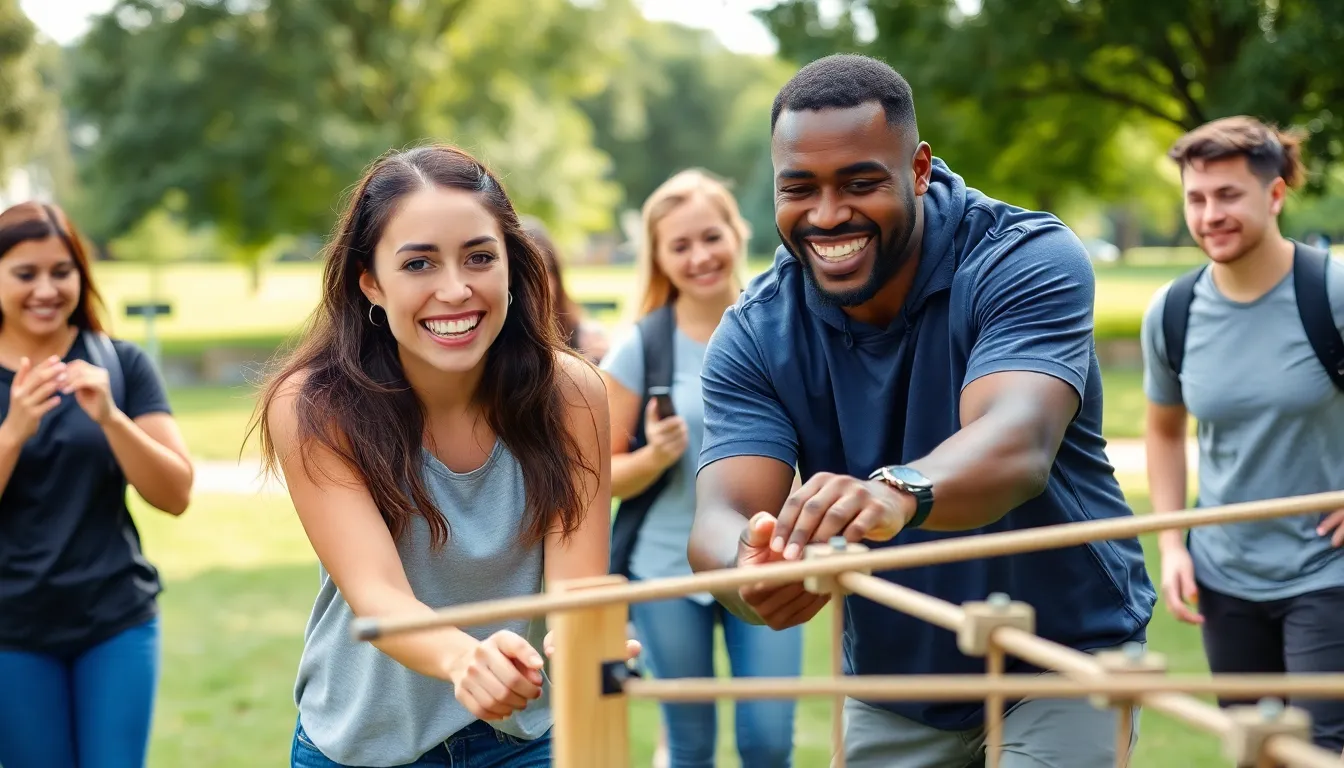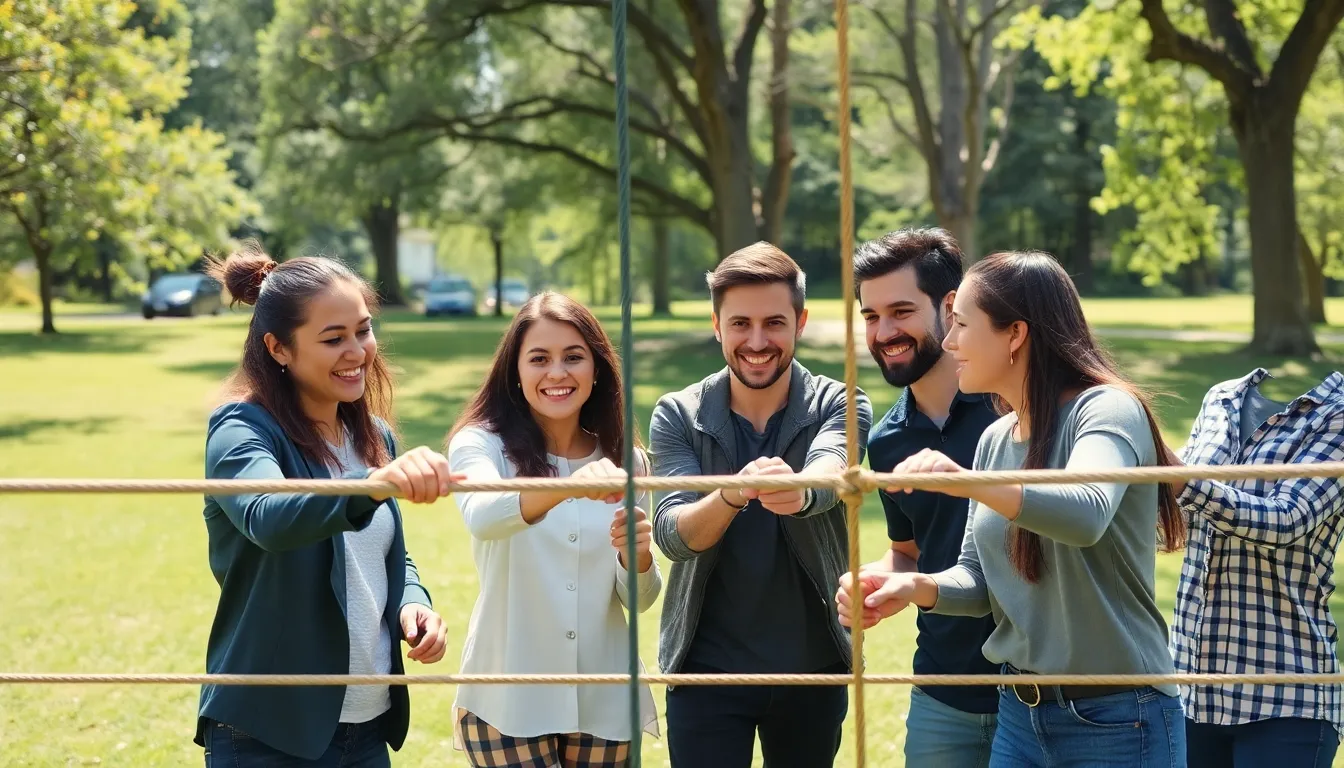In a world where every day feels like a new episode of “Survivor,” honing problem-solving skills is more crucial than ever. Whether it’s untangling your headphones or figuring out why the coffee machine refuses to cooperate, problem-solving activities can turn these daily dilemmas into opportunities for growth. They’re not just for corporate retreats or classroom settings; they can spice up family game nights or even that awkward first date.
Imagine transforming a mundane afternoon into a thrilling adventure of critical thinking. Engaging in problem-solving activities doesn’t just sharpen the mind; it also fosters teamwork and creativity, all while having a good laugh. So, buckle up and get ready to tackle challenges like a pro—because who knew solving problems could be this much fun?
Table of Contents
ToggleOverview of Problem-Solving Activities
Problem-solving activities encompass a variety of tasks aimed at enhancing cognitive abilities and interpersonal skills. Engaging in these activities supports the development of critical thinking, teamwork, and creativity. These tasks are not limited to structured environments; they thrive in casual settings as well.
Many problem-solving activities involve puzzles, games, or group discussions. They provide individuals with interactive experiences that challenge their thinking processes. These exercises often require participants to collaborate and communicate effectively, fostering a sense of community and shared purpose.
Incorporating problem-solving activities into everyday life offers significant benefits. For example, family game nights can introduce fun challenges that teach resilience and adaptability. Activities like escape rooms test individuals’ abilities to think on their feet while promoting teamwork.
Teachers can also implement problem-solving activities in the classroom to enhance learning outcomes. These experiences allow students to apply theoretical knowledge in practical scenarios. Creativity can flourish when students work together to find solutions in a supportive environment.
Overall, these activities offer a dynamic way to address challenges. They not only enhance personal growth but also strengthen relationships through shared problem-solving experiences. Engaging in varied activities suits all ages and skill levels, ensuring everyone can participate and benefit.
Importance of Problem-Solving Activities

Engaging in problem-solving activities offers numerous benefits that extend beyond formal learning environments. Participants develop essential skills that enhance personal and professional growth.
Enhancing Critical Thinking Skills
Critical thinking skills significantly improve through problem-solving activities. Activities like puzzles and strategy games require individuals to analyze situations and evaluate different outcomes. In doing so, they learn to identify logical connections and assess various perspectives. This approach fosters deeper understanding and sharper decision-making abilities. Regular participation in these activities prepares individuals for real-world challenges, equipping them with the skills to tackle complex problems effectively. The ability to think critically reinforces independence, enabling individuals to draw conclusions based on evidence and reasoning.
Fostering Creativity
Creativity flourishes in environments that encourage problem-solving. Engaging in diverse activities allows individuals to explore innovative solutions. Both group discussions and creative games stimulate out-of-the-box thinking, prompting participants to generate unique ideas. As teams collaborate on challenges, they combine different viewpoints, enhancing creativity through synergy. Regular exposure to these activities nurtures a mindset open to experimentation and risk-taking. Participants find enjoyment in the process, realizing that creative solutions often emerge from playful exploration and collaboration. This ongoing practice cultivates resilience, encouraging individuals to persevere when faced with obstacles.
Types of Problem-Solving Activities
Various types of problem-solving activities exist, designed for individuals, groups, and even online platforms. Engaging in these formats enhances collaboration, creativity, and critical thinking skills.
Individual Activities
Solo activities effectively boost personal problem-solving skills. Puzzles present opportunities for analytical thinking and can include jigsaw puzzles, Sudoku, and crosswords. Creative tasks such as writing prompts stimulate innovative thought, while mathematical challenges engage logical reasoning. Engaging with brain teasers encourages individuals to think critically and develop resilience, reinforcing the ability to tackle future challenges.
Group Activities
Group activities enhance teamwork and communication. Collaborative games like escape rooms require participants to solve puzzles and riddles together, fostering joint decision-making. Team-based strategic games such as chess or board games encourage interaction and collective brainstorming. Discussions centered around real-world scenarios promote diverse viewpoints, enhancing critical thinking and adaptability among team members. Retailing these experiences can lead to strengthened relationships and improved group dynamics.
Online Problem-Solving Challenges
Online platforms now offer a variety of problem-solving challenges. Websites host virtual escape rooms and competitive games that not only require critical thinking but also provide a fun, interactive environment. Platforms such as coding challenges teach logical reasoning and problem decomposition. Apps featuring trivia or puzzle games bring people together, enabling them to compete or collaborate regardless of location. Such online engagements cultivate a community of problem solvers eager to share ideas and strategies.
Best Practices for Implementing Problem-Solving Activities
Identify objectives clearly before starting any activity. Setting specific goals ensures participants understand what they need to achieve, enhancing focus and engagement. Establishing a structured environment promotes collaboration and effective communication among participants.
Use diverse activity formats to cater to different preferences and skills. Individual puzzles can sharpen personal skills while group activities foster teamwork and collective problem-solving. Online platforms like virtual escape rooms introduce a tech-savvy approach, appealing to a broader audience and encouraging interaction.
Encourage open-ended questions throughout the activities. This approach stimulates critical thinking and allows for multiple perspectives. Providing constructive feedback creates a supportive atmosphere, helping participants learn from their experiences and improve their skills over time.
Incorporate real-world scenarios into activities. Applying theoretical knowledge to practical situations enhances relevance and relatability. Using familiar challenges can motivate participants, as the problems resonate with their daily lives.
Schedule regular sessions to maintain engagement and provide steady improvement. Consistency in practice strengthens problem-solving skills and builds confidence. Varying activities keeps the momentum going and prevents monotony.
Lastly, celebrate progress and achievements. Recognizing individual and group successes fosters a positive environment. Acknowledgment not only reinforces learning but also encourages continued participation and investment in future activities.
Embracing problem-solving activities can transform everyday challenges into valuable learning experiences. These activities not only sharpen critical thinking and creativity but also enhance interpersonal skills and teamwork. By integrating problem-solving into both formal and informal settings, individuals can cultivate resilience and adaptability.
Whether through puzzles, collaborative games, or online challenges, the variety of formats available ensures there’s something for everyone. Regular engagement in these activities fosters a mindset open to experimentation and innovation. Ultimately, the journey of problem-solving not only enriches personal growth but also strengthens relationships, making it an essential practice for all ages.







